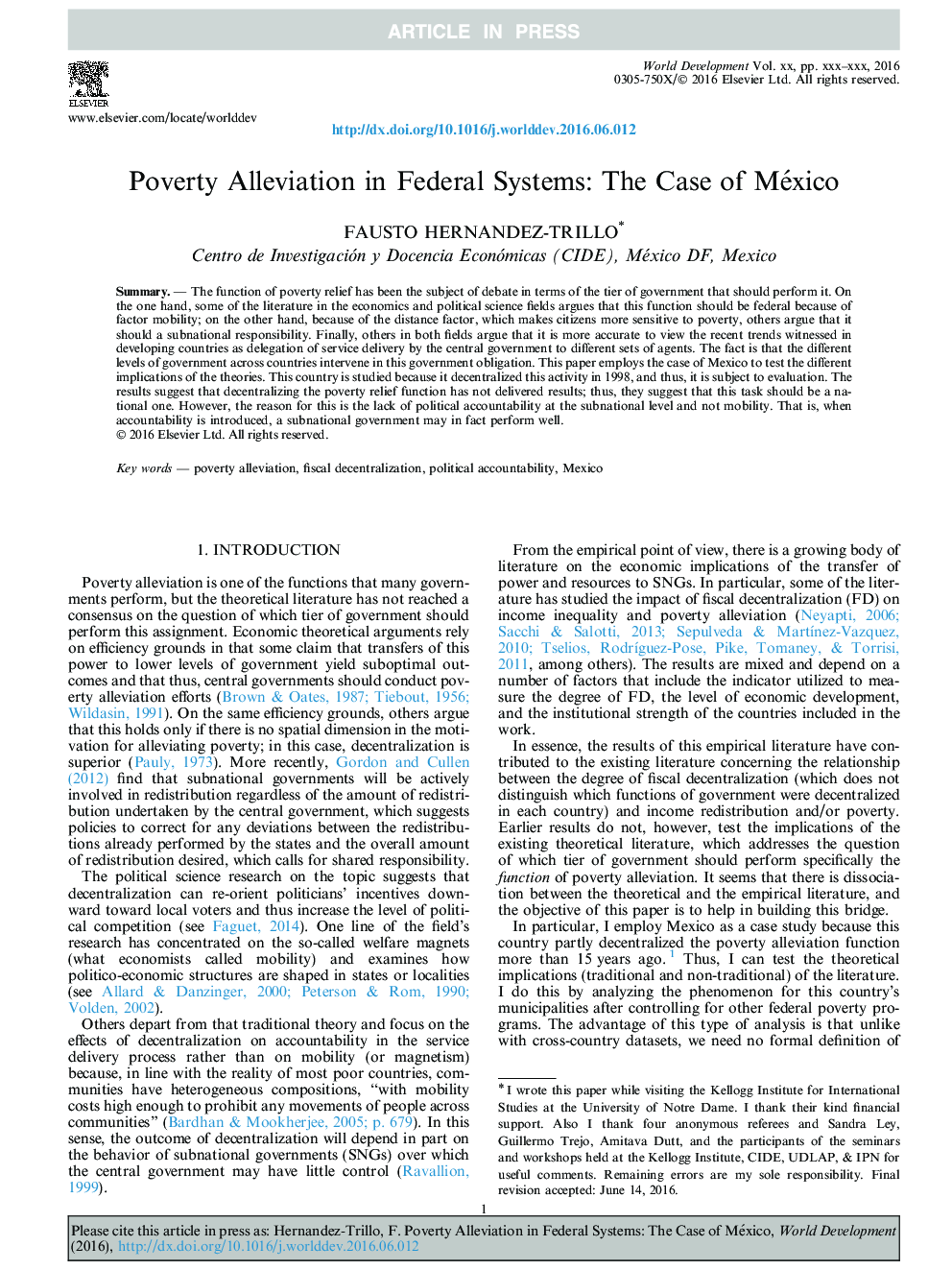| Article ID | Journal | Published Year | Pages | File Type |
|---|---|---|---|---|
| 7392459 | World Development | 2016 | 11 Pages |
Abstract
The function of poverty relief has been the subject of debate in terms of the tier of government that should perform it. On the one hand, some of the literature in the economics and political science fields argues that this function should be federal because of factor mobility; on the other hand, because of the distance factor, which makes citizens more sensitive to poverty, others argue that it should a subnational responsibility. Finally, others in both fields argue that it is more accurate to view the recent trends witnessed in developing countries as delegation of service delivery by the central government to different sets of agents. The fact is that the different levels of government across countries intervene in this government obligation. This paper employs the case of Mexico to test the different implications of the theories. This country is studied because it decentralized this activity in 1998, and thus, it is subject to evaluation. The results suggest that decentralizing the poverty relief function has not delivered results; thus, they suggest that this task should be a national one. However, the reason for this is the lack of political accountability at the subnational level and not mobility. That is, when accountability is introduced, a subnational government may in fact perform well.
Related Topics
Social Sciences and Humanities
Economics, Econometrics and Finance
Economics and Econometrics
Authors
Fausto Hernandez-Trillo,
